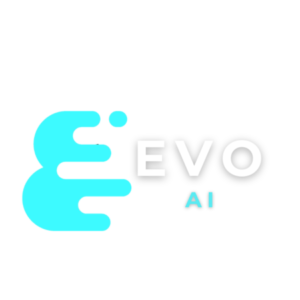
Stable Diffusion 3’s Launch Consolidates Stability AI’s Position in AI Image Design
Other AI News
-
Silicon Valley Startup GROK emerges as an early challenger to NVIDIA
In the rapidly evolving landscape of artificial intelligence (AI) technology, Groq, a Silicon Valley-based company, is emerging as a formidable contender against Nvidia’s dominance in the AI chip market. Despite Nvidia’s impressive 265% increase in earnings, Groq has captured attention with its innovative AI chips designed for large language model (LLM) inference, boasting a viral moment that highlighted its technology’s capability to deliver nearly instantaneous responses at a rate of nearly 500 tokens per second. This buzz was amplified by a public demonstration of Groq’s chat app, showcasing its ability to provide fast, factual answers, positioning the company as a serious player in the AI field.
Groq’s CEO, Jonathan Ross, asserts that the company’s language processing units (LPUs) offer a superior alternative for LLM applications, outpacing traditional GPUs by addressing computational and memory bandwidth challenges more efficiently. Ross’s bold claim that Groq’s infrastructure will be the primary choice for startups by the end of the year underscores the company’s competitive pricing and focus on privacy, as it does not log data from chat queries. With Groq’s LPUs potentially enabling more than a 13-fold increase in processing speed for applications like ChatGPT, the company is not only challenging Nvidia’s market share but also hinting at possible collaborations with major AI players to leverage its groundbreaking technology.
-
Amazon Bedrock to Integrate Mistral’s Leading Open-Source AI Models for Enhanced Generative AI Services
Amazon Web Services (AWS) is set to enhance its managed service for generative AI, Amazon Bedrock, by integrating open-source large language models (LLMs) from the French startup Mistral. AWS’s Principal Developer Advocate, Donnie Prakoso, announced that two of Mistral’s models, Mistral 7B and Mixtral 8x7B, will soon be accessible through Amazon Bedrock, although a specific launch date was not provided. Mistral 7B is designed for efficiency, requiring low memory while delivering high throughput for a variety of use cases, including text summarization, classification, and code completion. The more powerful Mixtral 8x7B utilizes a Mixture-of-Experts model to support additional languages and perform a broader range of tasks, such as question answering and code generation.
The decision to incorporate Mistral’s models into Amazon Bedrock reflects AWS’s strategy to offer a cost-effective, high-performance option for developers and organizations looking to leverage generative AI. Mistral’s models are praised for their fast inference speeds, transparency, customizability, and accessibility, making them suitable for a wide range of applications and compliance with regulatory requirements. This move positions AWS competitively against cloud rivals like Microsoft, which has added Meta’s open-source Llama AI models to its Azure AI Studio. It also aligns with Amazon’s broader AI ambitions, including significant investments in other AI model providers and efforts to develop proprietary generative AI foundation models.
-
Allocations Surpasses $2 Billion in Managed Assets, Revolutionizing Alternative Investment with AI
Allocations, a fintech startup leveraging artificial intelligence (AI) to enhance private capital fundraising, has surpassed $2 billion in assets under administration. This achievement underscores the growing interest in alternative investments, such as private equity and venture capital, and highlights the efficiency gains AI can bring to the traditionally labor-intensive process of generating legal documentation for fund creation. Kingsley Advani, the CEO of Allocations, credits AI with significantly boosting productivity, allowing each employee to service up to 70 funds, a figure that far exceeds the industry average. By utilizing machine learning models trained on a vast database of investment documents, Allocations can instantly produce necessary legal paperwork, thereby reducing costs and time.
The platform caters to asset managers, family offices, and angel investors, facilitating the creation of special purpose vehicles (SPVs) for collective investments in startups or assets. Notable SPVs facilitated by Allocations include investments in Leeds United, SpaceX, OpenAI, and Anthropic. The automation of creating legal entities and regulatory filings by Allocations democratizes access to alternative assets, enabling smaller niche funds with lower minimum investments. Looking forward, Allocations aims to expand its reach with a mobile app that will allow fund managers to launch funds from anywhere in minutes, reflecting a shift towards mobile management of investments and aiming to democratize access further to alternative investing opportunities.
-
Jasper Enhances AI Marketing Tools with Acquisition of Stability AI’s Clipdrop
Jasper, a generative AI-driven marketing copilot based in San Francisco, has announced its acquisition of Clipdrop, an image creation and editing platform developed by Stability AI. This strategic move aims to enhance Jasper’s multimodal capabilities, allowing marketing teams to expedite their advertising strategies and produce on-brand creative content more efficiently. Timothy Young, CEO of Jasper, emphasized that integrating Clipdrop will advance Jasper’s goal to become the most comprehensive marketing copilot, facilitating personalized marketing, automation, and strategy optimization across various formats, channels, and functions.
Clipdrop, founded in 2020 by Google alumni Cyril Diagne, Damien Henry, and Jonathan Blanchet, offers a suite of tools for creating and editing images, including inpainting, background removal, object removal, and more. This acquisition, which was finalized on February 20, will see the Clipdrop team join Jasper to further develop multimodal capabilities within Jasper’s copilot. Despite the integration, Clipdrop will continue to operate as a standalone product. Stability AI, which had acquired Clipdrop in March 2023, will continue to support the platform with its models, indicating ongoing collaboration between Jasper and Stability AI in the realm of generative AI tools for marketing.
-
Google Chrome Integrates Gemini-Powered AI Writing Tool for Enhanced Web Assistance
Google Chrome has introduced a new AI writing tool, powered by its Gemini AI model, designed to enhance the web browsing experience by offering writing assistance across the entire web. This tool, an extension of the “Help me write” feature previously available in Gmail, is now accessible through Chrome’s settings under the “Experimental AI” section. Currently available only in English for Windows, Mac, and Linux users, this feature allows users to generate new content or rewrite existing text by simply right-clicking on any text field and selecting “Help me write.” The tool is tailored for short-form content, such as emails or support requests, and does not provide access to an enhanced writing model even for Gemini Advanced subscribers.
The AI writing tool is context-aware, taking into account the webpage’s content to suggest relevant recommendations. For instance, when writing a review for a product, Chrome will highlight key features from the product page to enrich the review for potential shoppers. However, users should be aware that using this service sends the text, content, and URL of the page to Google under its existing privacy policy, with the collected information being used to improve the feature through generative model research and machine learning technologies, including human review processes.
-
Intel and OpenAI Chiefs Discuss the Future and Justify Massive AI Investments
In a recent fireside chat, Intel CEO Pat Gelsinger and OpenAI CEO Sam Altman discussed the future of AI and defended their significant investments in the technology. Gelsinger, who is investing $25 billion annually in new chip factories under the U.S. CHIPS and Science Act, sought Altman’s perspective on the demand for semiconductors in the AI-driven future. Altman, whose leadership at OpenAI has been pivotal in advancing generative AI, supported the need for increased semiconductor production, predicting a substantial rise in demand over the next few decades.
The conversation highlighted the transformative impact of AI on various sectors, including the chip industry, where companies like Nvidia have seen a dramatic increase in revenue due to the demand for AI capabilities. Both leaders emphasized AI’s potential to become an integral part of every company’s strategy, likening its ubiquity to the widespread adoption of mobile technology following the introduction of the iPhone. They also discussed the challenges and opportunities ahead, including the need for AI to become smarter and more integrated into societal solutions, from healthcare to scientific discovery. Despite the risks associated with AI, both Gelsinger and Altman expressed optimism about its positive impact on the future, advocating for responsible development and deployment to maximize its benefits while mitigating potential harms.
-
Nvidia’s Revenue Skyrockets to $22.1 Billion, Fueled by AI and Data Center Growth
Nvidia has reported a staggering $22.1 billion in revenue for its fourth fiscal quarter of 2024, marking a 265% increase from the previous year and surpassing Wall Street’s expectations. This growth is attributed primarily to the company’s data center segment, which saw a 409% year-over-year increase, reaching $18.4 billion. The surge in demand for Nvidia’s GPUs and AI chips is driven by the widespread adoption of accelerated computing and generative AI across various industries, including cloud-service providers, enterprise software, consumer internet companies, and sectors such as automotive, financial services, and healthcare.
Jensen Huang, CEO of Nvidia, highlighted the company’s pivotal role in the AI revolution, noting that accelerated computing and generative AI have reached a tipping point with surging global demand. Nvidia’s RTX platform, introduced less than six years ago, now serves over 100 million gamers and creators, further demonstrating the company’s influence in the PC platform space for generative AI. Looking ahead, Nvidia anticipates continued growth, with a revenue expectation of $24 billion for the first quarter of fiscal 2024. This optimistic outlook is supported by Nvidia’s strategic collaborations and innovations, including partnerships with major car makers and the expansion of its AI infrastructure, which Huang describes as “AI generation factories.
-
Arm Launches Advanced Neoverse CSS V3 Designs to Boost AI Performance and Efficiency
Arm has introduced two groundbreaking Arm Neoverse Compute Subsystems (CSS) based on its third-generation Neoverse intellectual property, marking a significant advancement in AI infrastructure. These new designs, the Arm Neoverse CSS V3 for the high-performance V-series portfolio and the Arm Neoverse CSS N3 for the N-series, promise substantial improvements in server-class performance and energy efficiency. The V3 design boasts a 50% increase in performance-per-socket over its predecessor, the CSS N2, while the N3 design offers a 20% boost in performance-per-watt compared to the N2. This development underscores Arm’s commitment to enhancing AI compute performance amidst the growing demand for AI applications across various sectors.
Arm’s Neoverse CSS platforms are optimized, integrated, and verified solutions that form the core of System-on-Chip (SoC) designs, providing a solid foundation for partners focused on differentiation, SoC optimization, and accelerated market entry. The introduction of these new subsystems is part of Arm’s broader strategy to address the increasing need for specialized computing solutions beyond commodity CPUs. With the expansion of the Arm Total Design ecosystem, which now includes over 20 partners, Arm is facilitating the development of custom SoCs that leverage Neoverse CSS for a wide range of applications, from AI to databases and networking. This initiative not only enhances Arm’s position in the AI and computing landscape but also supports the industry’s shift towards more efficient and powerful AI-driven solutions.
-
Google DeepMind Unveils Gemma: Open Source AI Models for Enhanced Developer Flexibility
Google DeepMind has introduced Gemma, a new set of open-source models, marking a significant step in the open AI race. Built on the same foundation as the recently announced Gemini models, Gemma offers 2B and 7B variants designed to enhance AI development flexibility. These models come with pre-trained and instruction-tuned versions, available under a permissive commercial license alongside a Responsible Generative AI toolkit. Google aims to support developers across all major frameworks, including JAX, PyTorch, and TensorFlow, by providing toolchains for inference and supervised fine-tuning (SFT). Gemma is also compatible with various platforms, such as Hugging Face, MaxText, and NVIDIA NeMo, ensuring its accessibility for development on laptops, workstations, or Google Cloud.
This initiative reflects Google DeepMind’s commitment to open sourcing technology for AI development, following in the footsteps of TensorFlow, Jax, and other models like PaLM2 and AlphaFold. By offering both APIs and open models, Google provides developers with a comprehensive set of tools for their workflows, allowing for easy experimentation, customization, and fine-tuning. Additionally, Google DeepMind plans to release a full set of benchmarks for Gemma, showcasing its performance against other models in a transparent and community-open approach. Gemma’s design prioritizes safety and reliability, incorporating automated techniques to filter sensitive data from training sets and employing reinforcement learning from human feedback (RLHF) to align with responsible behaviors. This open model initiative aims to integrate diverse perspectives from the global developer and researcher community, fostering the development of safer AI systems.
-
ChatGPT Experiences Brief Glitch, Producing Nonsensical Responses Before Quick Fix
OpenAI recently encountered a significant hiccup with its flagship AI, ChatGPT, which began producing gibberish responses for users. This issue, occurring on the afternoon of February 20, 2024, involved the chatbot delivering nonsensical outputs, mixing languages unintelligibly, inventing words, and repeating phrases without prompt. Users on X (formerly Twitter) highlighted these malfunctions, with some comparing the bizarre outputs to “weird horror” extraterrestrial graffiti, suggesting an eerie disconnect akin to an inhuman intelligence gone awry.
The incident sparked a mix of reactions online, ranging from jokes about the onset of a robot uprising to concerns over the reliability of generative AI tools for tasks involving writing and code generation. OpenAI acknowledged the problem on its public status dashboard and quickly worked on a fix, stating that an optimization attempt had introduced a bug affecting the model’s language processing. By the following day, OpenAI announced that the issue had been resolved, reassuring users that ChatGPT was back to normal operation. Despite the swift resolution, this episode has raised questions about the reliability and integrity of using ChatGPT and other OpenAI products for critical enterprise applications in sectors such as transportation, healthcare, and engineering.
-
ElevenLabs Set to Revolutionize Digital Content with New AI-Driven Text-to-Sound Model
ElevenLabs, an AI startup specializing in voice cloning and synthesis, is expanding its technological horizons with the introduction of a novel text-to-sound model. This innovative AI tool is designed to allow creators to generate sound effects from textual descriptions, potentially transforming the landscape of digital content creation. While the model is not yet publicly available, ElevenLabs has teased its capabilities through a video demonstration, highlighting its application alongside visuals from OpenAI’s Sora. The company has also initiated a signup page for early access, inviting interested users to join a waitlist and participate in the early stages of this groundbreaking technology.
The initiative by ElevenLabs to venture into text-to-sound conversion builds on its foundation of making audio and video content more accessible and engaging across various languages and regions. By leveraging its expertise in AI-driven audio synthesis, ElevenLabs aims to fill a gap in the current digital content creation toolkit, particularly in enhancing AI-generated videos that lack accompanying sound effects. This development not only showcases ElevenLabs’ commitment to innovation in the AI space but also signals the growing importance of sound in creating immersive and realistic digital experiences. As the company prepares for the public release of this model, the creative and technological communities eagerly anticipate the new dimensions of storytelling and content creation it will unlock.
-
Google Faces Backlash for Historical Inaccuracies in AI-Generated Images
Google has acknowledged a significant misstep with its image-generating AI model, Gemini, which inadvertently introduced diversity into historical images without regard for accuracy. This error led to anachronistic and often ludicrous representations, such as depicting the Founding Fathers of the United States as a multicultural group. This incident has sparked widespread ridicule and criticism, fueling debates around diversity, equity, and inclusion within the tech industry. Google’s attempt to explain the mishap pointed to a well-intentioned effort to counteract systemic bias in training data, which often results in overrepresentation of certain demographics in AI-generated images. The company aimed for its model to reflect a diverse range of people when users did not specify particular characteristics in their prompts, striving for inclusivity and global relevance.
However, Google’s execution of this diversity initiative in the Gemini model led to historically inaccurate outputs, revealing a lack of nuanced understanding of context by the AI. Google Senior Vice President Prabhakar Raghavan highlighted that the model’s overzealous approach to diversity and its overly cautious response to certain prompts resulted in both comically inaccurate images and the refusal to generate images for some prompts. This incident underscores the challenges AI developers face in balancing the desire for inclusivity with the need for accuracy and context sensitivity. It also raises questions about the accountability of AI developers for the errors made by their models, emphasizing that the responsibility for such mistakes lies with the creators, not the AI itself.
-
DatologyAI Innovates with Automated Curation for AI Training Datasets
DatologyAI, a startup founded by AI industry veteran Ari Morcos, is developing technology aimed at automating the curation of AI training datasets. This innovation seeks to address the significant challenges associated with preparing and cleaning massive datasets, which often contain biases and extraneous information that can hinder the development of powerful AI models. According to surveys, data-related issues are a major concern for companies adopting AI, with data scientists spending a considerable portion of their time on data preparation tasks. DatologyAI’s platform promises to streamline these processes by identifying the most relevant data for a model’s specific application, enhancing dataset augmentation, and optimizing data batching during training.
The importance of a well-curated training dataset cannot be overstated, as it influences every aspect of a model’s performance, including its efficiency, domain knowledge depth, and overall effectiveness. DatologyAI’s approach, which can handle data in any format and scale up to petabytes, distinguishes itself from other data prep tools by its ability to process a wide range of data types and deploy directly to a customer’s infrastructure. With AI implementation costs rising and interest in generative AI (GenAI) at an all-time high, DatologyAI’s solution could significantly reduce the financial and computational burdens of training custom AI models, making efficient, performant, and specialized AI more accessible to businesses.
-
Antler Invests in Southeast Asia’s Vertical AI Startups, Targeting Industry-Specific Solutions
Antler, a Singapore-based venture capital firm, has recently invested $5.1 million across 37 pre-seed deals in vertical AI startups throughout Southeast Asia, targeting a diverse range of sectors from seafood to finance. This investment strategy is part of Antler’s broader initiative to support startups that address specific industry challenges with AI technology, diverging from the trend of developing horizontal AI solutions that span multiple industries. Antler’s focus on vertical AI startups is driven by the unique needs of different sectors in Southeast Asia, where practical problems demand tailored AI applications. The firm’s approach is to leverage the region’s distinct market dynamics and talent pool, aiming to solve real-world problems with customer-first AI solutions.
Among Antler’s notable investments are BorderDollar, which is innovating in invoice financing for cross-border logistics, and CapGo, automating data acquisition for market research with a focus on Southeast Asia. Other investments include Seafoody and Zolo, both addressing inefficiencies in the food supply chain, and Coex, which aims to digitize aspects of the construction industry. These startups exemplify Antler’s strategy of building deep competitive moats by addressing specific industry challenges with AI. Antler’s commitment to vertical AI underscores the potential for startups in Southeast Asia to create impactful solutions tailored to the unique characteristics of their target markets, despite the global competition in AI development.
-
Moonshot AI Secures $1 Billion in Funding, Targets Long-Form Language Processing
Moonshot AI, a burgeoning artificial intelligence startup from China, has reportedly secured over $1 billion in a Series B funding round, propelling its valuation to $2.5 billion. This marks a significant milestone as the largest single funding round for Chinese large language model (LLM) developers to date. Specializing in LLMs capable of processing extensive text and data inputs, Moonshot AI aims to address the challenges associated with long-form context and response in AI development. The company, also known as YueZhiAnMian in China, has quickly gained traction by launching a 100 billion-parameter LLM and introducing Kimi, a chatbot that can process up to 200,000 Chinese characters in a single conversation, showcasing its capability to handle significantly longer inputs than its competitors.
The funding round, led by Alibaba and HongShan (formerly Sequoia China), along with participation from other major Chinese tech companies, underscores the strategic interest in Moonshot AI’s potential to lead in the LLM space. The investment reflects a broader trend in China, where tech giants are actively seeking to establish their foothold in the AI domain by backing promising startups. Moonshot AI’s rapid progress and ambitious goals highlight the intense competition and innovation within the AI industry in China, as companies vie to develop advanced models that can process and understand complex, long-form content more effectively.
-
Bioptimus Secures $35 Million to Pioneer AI Foundational Model in Biology
Bioptimus, a Paris-based generative AI startup, has embarked on a mission to harness the power of AI exclusively for the field of biology, raising $35 million in a seed funding round led by Sofinnova Partners. This ambitious venture aims to tackle the unique challenges of accessing and utilizing sensitive clinical data, which is not publicly available, to train its models. Unlike other AI endeavors that may rely on web-crawled data, Bioptimus must navigate the complexities of handling confidential clinical information to develop its foundational models. This venture is particularly capital-intensive, necessitating significant investment in GPUs and the recruitment of top-tier researchers.
The company, co-founded by Jean-Philippe Vert, who serves as the executive chairman in a non-operational role and is also the chief R&D officer at Owkin, plans to leverage Owkin’s extensive multimodal patient data collected through partnerships with leading academic hospitals worldwide. This unique dataset will be instrumental in training Bioptimus’s foundational model. The startup’s formation as a separate entity from Owkin, described as a moonshot project, underscores the enormity of the task at hand and the specialized focus required to develop AI models tailored for biology. With a partnership already established with Amazon Web Services for model training, Bioptimus is poised to revolutionize disease diagnosis, precision medicine, and the creation of new biomolecules for medical and environmental applications.
-
Orbital Materials Raises $16 Million to Revolutionize Material Discovery with AI
Orbital Materials, a Paris-based startup led by former DeepMind senior researcher Jonathan Godwin, is pioneering the use of generative AI technology to accelerate the discovery and manufacturing of new physical materials. With a focus on applications ranging from batteries to carbon dioxide-capturing cells, Orbital Materials aims to revolutionize the traditional, labor-intensive process of material discovery by leveraging AI to predict the properties and processes required to create new materials. This approach not only promises to save time and resources but also to open up new possibilities in material science that were previously unattainable through conventional methods.
The startup’s proprietary AI model, Linus, is at the core of its innovative platform, trained on a diverse dataset encompassing simulations and materials across various domains. Linus enables scientists to input natural language instructions and receive 3D molecular structures that meet specified criteria, streamlining the path from concept to viable material. With a recent $16 million Series A funding round led by Radical Ventures and participation from Toyota Ventures, Orbital Materials is set to expand its data science and wet lab teams, pushing the boundaries of material science and aiming to bring groundbreaking materials to market at an unprecedented speed.
-
Arc Browser’s Innovative ‘Pinch-to-Summarize’ Feature Faces Accuracy Challenges
Arc, a browser developed by The Browser Company with a focus on a cleaner web experience, has introduced a novel AI-powered feature in its mobile app, Arc Search, that allows users to summarize web pages with a simple pinch gesture. This feature, which displays a neatly formatted summary of the main points, has sparked interest for its innovative interaction with AI, though it has raised concerns about its potential impact on web traffic for news publishers. Arc’s approach to summarizing content is unique due to its gesture-based design, setting it apart from other AI summarization tools like Google’s Search Generative Experience and the now-defunct Artifact app. However, initial tests reveal that while the pinch-to-summarize feature is visually appealing and user-friendly, it often fails to capture essential details or nuances of the content, leading to incomplete or inaccurate summaries.
Despite the promising user experience offered by the pinch gesture, which folds the web page in an origami style while generating a summary, the AI’s performance in accurately summarizing content has been inconsistent. For example, it missed critical updates in a story about Gmail and struggled with content in languages other than English. These shortcomings highlight the challenges of relying solely on AI for content summarization, especially when critical information may be omitted. Additionally, there are broader concerns about the implications of such AI-powered features on journalism and the web ecosystem, as they could potentially reduce direct traffic to original content sources. As Arc continues to develop and refine this feature, the balance between innovation in AI interaction and the accuracy and reliability of the information provided will be crucial.
About The Author

Bogdan Iancu
Bogdan Iancu is a seasoned entrepreneur and strategic leader with over 25 years of experience in diverse industrial and commercial fields. His passion for AI, Machine Learning, and Generative AI is underpinned by a deep understanding of advanced calculus, enabling him to leverage these technologies to drive innovation and growth. As a Non-Executive Director, Bogdan brings a wealth of experience and a unique perspective to the boardroom, contributing to robust strategic decisions. With a proven track record of assisting clients worldwide, Bogdan is committed to harnessing the power of AI to transform businesses and create sustainable growth in the digital age.








Leave A Comment